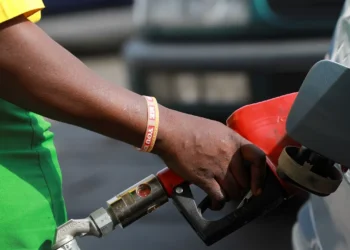The Natural Oil and Gas Suppliers Association of Nigeria (NOGASA) raised concerns on Tuesday regarding what they described as the ongoing “dollarisation” of the Nigerian economy, particularly in the collection of charges by the Nigerian Ports Authority (NPA) and the Nigerian Maritime Administration and Safety Agency (NIMASA).
Speaking at a press briefing, Benneth Korie, the National President of NOGASA, highlighted the challenges faced by oil and gas marketers amid rising diesel prices, poor road infrastructure, and the requirement to conduct transactions in dollars within Nigeria.
One major issue raised by Korie is the practice of charging daughter vessels, which are chartered to discharge refined products from mother vessels, in dollars. Additionally, NPA’s docking charges are also collected in dollars. Korie argued that conducting transactions in dollars within Nigeria is not viable and called for a shift towards using the local currency.
Korie emphasized the need for crude oil to be sold in naira, especially with the impending commencement of operations at the Dangote refinery and the federal government refinery in Port Harcourt. He suggested that while the authorities may choose to peg the price against the dollar, selling crude oil in naira would help alleviate the energy crisis and reduce transportation costs.
NOGASA urged the federal government to consider temporarily pegging the prices of diesel to prevent further financial strain on marketers. Korie warned that failure to address these challenges could lead to business closures in the sector.
Highlighting the impact of high bank interest rates, Korie expressed concerns that many association members could face legal action from commercial banks due to difficulties in meeting financial obligations. He lamented the closure of filling stations and the overall decline in business viability within the sector.
In conclusion, NOGASA called for the removal of dollar transactions by NIMASA and NPA, urging the government to intervene to alleviate the financial burden on oil and gas marketers. They emphasized the importance of conducting transactions in the local currency to foster a more favorable business environment and sustain operations within the sector.










